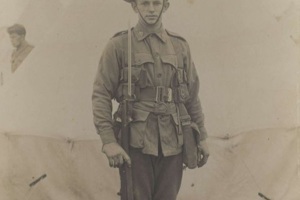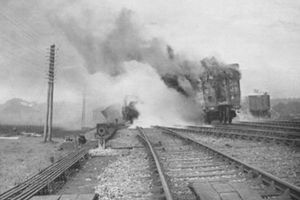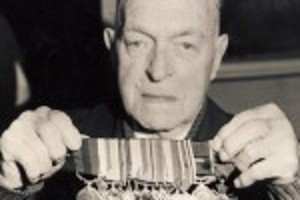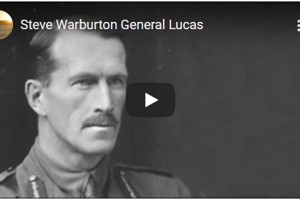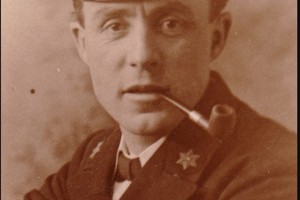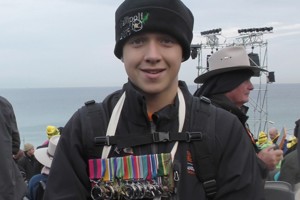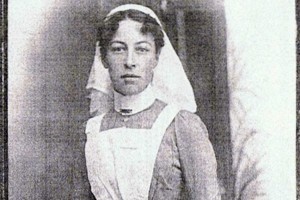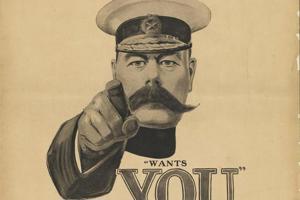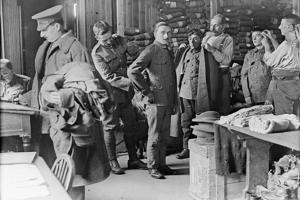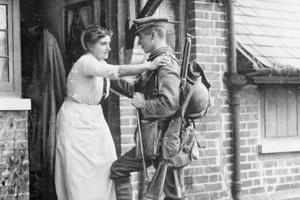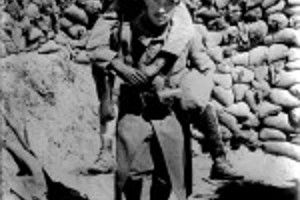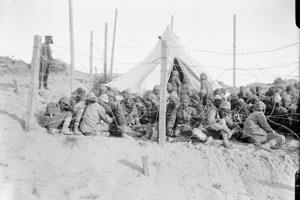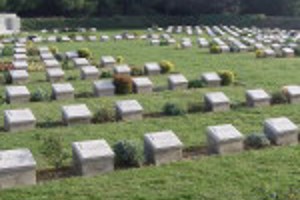Soldier Stories
Behind the strategy and the tactics are thousands of stories of real people, and for every one of them it was a different experience. This section looks at Gallipoli from a more personal angle.
-
If you’d like to hear one of the soldiers speak, there’s a recording of 24 year old Private Henry Miller Lanser here. It was made in Egypt, before he went to Gallipoli and sent back to his family in Sydney, Australia. Henry Miller Lanser survived Gallipoli, although he was wounded twice, but was killed two years later in France. How precious t...
-
The accident was followed by a devastating fire (Wikipedia) On 22nd May 1915 Britain’s worst ever rail disaster happened at Quintinshill near Gretna when three trains collided, killing 226 and injuring 246. All but 10 of the dead were volunteer soldiers from Edinburgh on their way to Liverpool before setting sail for Gallipoli. Of the 485 m...
-
Throughout this project we have worked with Kobi Watson, an Australian teenager who is one of the youngest grandsons of a Gallipoli veteran. His grandfather, Horace Clyde Martyr, landed at Gallipoli with the ANZACs in 1915 but was amongst the wounded and was evacuated after only one day on the Peninsula. Kobi won a place to attend the Dawn Ser...
-
Brigadier-General Cuthbert H. T. Lucas was one of a very small number of officers who saw the whole Campaign through from start to finish, while most others were either killed, wounded or fell sick. His diaries and letters were found in an old wooden chest of drawers by Steve Warburton, husband of Lucas’ granddaughter. Steve has transcribed them...
-
Harry writes to his wife Queenie before making his Gallipoli landing Harry Biles was killed by a shot from a Turkish sniper on 13th July 1915 but his loving nature lives on through the letters he sent home to his wife Queenie and his brother Arthur. Harry was 36 when he was killed but had joined the navy as a boy aged 15. By 1915 he w...
-
We are delighted to welcome Kobi Watson as our guest blogger. Kobi, 15, is one of the youngest grandson of a Gallipoli veteran (also the youngest member of the Gallipoli Association!), and has just got back to Australia after joining 10,000 others at the Dawn Service at Anzac Cove in Gallipoli on 25th April, 100 years to the day when his grandf...
-
Did women play any part at Gallipoli, or were they all left at home? On the hospital ships, and the hospital camps at nearby islands there were nurses, and there are photos of Greek women who lived on the islands, but were there women on the peninsula itself? Were there any fighters? This page tells some of their stories. Was this the only woma...
-
What would persuade you to go to war, and possibly to die? Adventure? Duty? Propaganda? Friendship? Money? This section explores some of these. Soldiers came to Gallipoli from all over the world and the three recruitment posters below show three ways that the army tried to persuade them to join up. In this famous British poster Lord Kitchener s...
-
Soldiers having their uniforms fitted. © IWM (Q 30069) At the start of the First World War the regular British army was quite small. Lord Kitchener was Secretary of State for War. He realised that many more recruits were needed, and the national campaign was started. But what was it like for the young men in Kitchener’s ‘New Armies’? How d...
-
What must it have been like for the mothers, the sisters, the brothers and fathers left at home? One of our projects explored this through drama and film, using diaries and letters – see more here. For a Turkish view, look at the stylish film called ‘Sons of Gallipoli – the stories of our fallen heroes through mothers’ eyes’, produced by a Turki...
-
Huge numbers of soldiers were wounded – about 200,000 on each side, including casualties from serious illness or disease. With numbers like this it’s easy to lose sight of the individuals, but every one meant pain, suffering and stress. What happened to you if you were unlucky enough to be wounded? Here military historian and battlefield guide K...
-
Could you expect to be treated well? Were you likely ever to make it home again? The photos and drawings on this page give an idea of what it might have been like to be a prisoner of war – click on the photos for larger versions. For more detailed information including soldiers’ accounts read this PDF. Click here for the 1899 Hague Convention’...
-
Gallipoli is a beautiful place to visit and it’s hard to imagine it as a battlefield. Yet 145,000 men were killed there and most of them lie in cemeteries near the beaches and in the hills. The cemeteries for the British and Commonwealth dead are beautifully kept by the Commonwealth War Graves Commission, and here Keith Dolan, a frequent visito...

